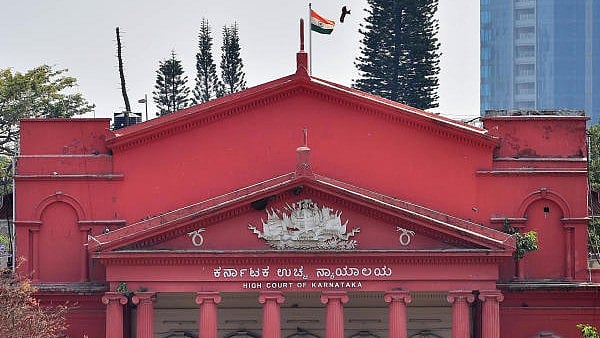
Karnataka High Court.
Credit: PTI Photo
Bengaluru: The provisions of IPC section 498A (cruelty) are attracted even in cases of void or voidable marriages, or a relationship in the nature of marriage, provided the ingredients of the offence are otherwise established, the Karnataka high court has ruled in a recent judgement.
Justice Suraj Govindaraj said this while dismissing the petition filed by a Shivamogga-based doctor and his family members.
The petitioner challenged separate proceedings, pending before a Shivamogga court and Bengaluru court for various offences including IPC sections 498A (cruelty) 494 (bigamy), 504 and 506 (criminal intimidation).
The complainant woman had alleged that they lived together for a substantial period, discharged marital obligations, and held themselves out to society as husband and wife.
During this period, it is alleged that the petitioner received gold, silver, and cash from her family members, and allegedly made unlawful demands. The allegation also included acts of harassment, cruelty and even an attempt to cause her death.
The petitioner — doctor argued that the complainant is not his legally wedded wife and that he is already married and has a daughter. It was further contended that at most, the relationship could be a live-in relationship and living together would not attract the offence of IPC section 498A, which can only be attracted in a valid and legal marital relationship.
The court noted that the expression “husband” in IPC section 498A is not confined to a man in a legally valid marriage.
It also extends to one who enters a marital relationship which is void or voidable, as also to a live-in relationship which bears the attributes of marriage, so long as the essential ingredients of cruelty as defined in the explanation to the section are satisfied, the court said.
“If the Petitioner’s submission were to be accepted, it would produce a manifestly unjust and anomalous result — namely, that a man who deceives a woman into a void marriage by concealing his earlier marriage could then escape criminal liability under Section 498A merely because the relationship lacks legal validity. Such a position would not only defeat the purpose of the enactment but also encourage fraud and exploitation of women under the guise of invalid marital relationships. The courts cannot countenance such a perverse consequence,” Justice Suraj Govindaraj said.